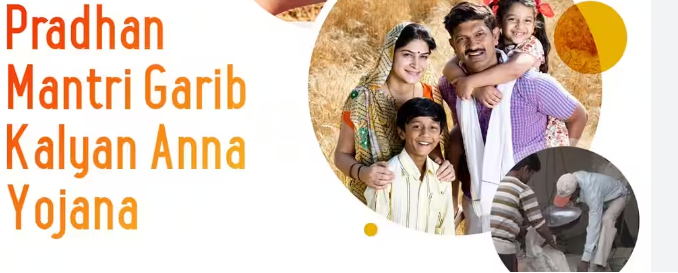Pradhan Mantri Garib Kalyan Yojana
Pradhan Mantri Garib Kalyan Yojana (PMGKY) is a comprehensive relief package launched by the Government of India to help the poor and vulnerable sections of society cope with the economic impact of the COVID-19 pandemic. The scheme was announced by Finance Minister Nirmala Sitharaman on 26 March 2020 as part of the government’s Rs. 1.70 lakh crore relief package under the Atmanirbhar Bharat Abhiyan.
Objectives
The primary objectives of PMGKY are:
- To provide immediate relief to the poor and vulnerable sections of society affected by the COVID-19 pandemic and the nationwide lockdown.
- To ensure food security and cash transfers to help the poor and vulnerable households sustain during the crisis.
- To provide health insurance coverage to frontline health workers fighting the COVID-19 pandemic.
Components of the Scheme
PMGKY consists of several components targeting various sectors and beneficiaries:
- Insurance scheme for health workers: The scheme provides an insurance cover of Rs. 50 lakh per health worker, including sanitation workers, paramedics, nurses, ASHA workers, and doctors, who may have to be in direct contact and care of COVID-19 patients.
- PM Garib Kalyan Ann Yojana (PMGKAY): Under this scheme, the government provides 5 kg of wheat or rice and 1 kg of preferred pulses for free every month to 80 crore poor beneficiaries covered under the National Food Security Act (NFSA). The scheme has been extended multiple times and is currently valid till March 2022.
- Direct Benefit Transfer (DBT): The scheme provides cash transfers to various beneficiaries, including: a. ”’Women Jan Dhan account holders:”’ Rs. 500 per month for three months (April, May, and June 2020). b. ”’MGNREGA workers:”’ Wage increase from Rs. 182 to Rs. 202 per day, benefiting 13.62 crore families. c. ”’Poor widows, senior citizens, and divyang:”’ Ex-gratia payment of Rs. 1,000 in two instalments (April and May 2020).
- Ujjwala Yojana: Under this scheme, the government provided free LPG cylinders to 8 crore poor families for three months (April, May, and June 2020).
- Self-Help Groups (SHGs): The scheme provided collateral-free loans up to Rs. 20 lakh to women SHGs, benefiting 63 lakh SHGs and 6.85 crore households.
- Organised sector workers: The scheme provided relief to organised sector workers through various measures, such as: a. ”’EPF support:”’ The government paid the EPF contribution of both employer and employee (12% each) for three months (March, April, and May 2020) for establishments with up to 100 employees, where 90% of employees earn less than Rs. 15,000 per month. b. ”’EPFO regulation amendment:”’ The scheme allowed withdrawal of up to 75% of the account balance or three months’ wages, whichever is lower, for EPFO members facing financial hardship due to the pandemic.
Impact and Expenditure
As of March 2021, the government had allocated Rs. 2.76 lakh crore for the implementation of PMGKY, benefiting millions of poor and vulnerable households across the country. The scheme has been praised for its timely and targeted interventions, which have helped mitigate the economic impact of the pandemic on the poor and vulnerable sections of society.
However, the scheme has also faced some challenges, such as:
- Inadequate coverage of migrant workers and the urban poor, who were among the worst affected by the pandemic and the lockdown.
- Delays and exclusion errors in the identification and delivery of benefits to the intended beneficiaries.
- Limited fiscal space for extending the scheme beyond the initial period, given the government’s rising fiscal deficit and debt levels.
Despite these challenges, PMGKY remains a significant initiative by the Government of India to provide relief and support to the poor and vulnerable sections of society during the unprecedented crisis caused by the COVID-19 pandemic. The scheme has demonstrated the government’s commitment to inclusive growth and social welfare, and has set a precedent for future social protection measures in the country.


